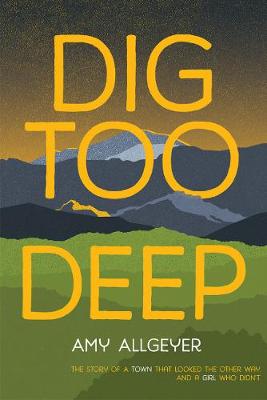At the start of this book, I wasn't completely sold. I wasn't a fan of Liberty's life choices. She was kind of being a snob, and her boyfriend was basically the worst. She was judgmental and frankly, I didn't care for her. And she called her mom "Former Mother" which was irritating. And the Kentucky backdrop seemed a bit stereotypical for my liking.
But then. Then things got pretty great. Luckily, Liberty finally starts to get her act together. She teams up with her boyfriend's friend Dobber (who she's been told is a "bad guy") who understands the severity of the situation with the water firsthand. Liberty starts to understand the world and the people around her- and she realizes that she was probably wrong about a great many things. And can we please talk about how much I love Granny? Granny and Liberty's relationship is everything. Granny is my actual Grandma. Like if you met her, you'd be like "holy crap, that is the actual Granny from Dig too Deep!", but only if you had read the book.
Anyway, even though the book is obviously fiction, the importance of these environmental issues is not. This kind of tainted water and such leading to cancer and other illnesses? Yeah, that's a thing. Birth defects, things of that nature, they happen from environmental triggers, and it is heartbreaking to read about all the suffering. And the concern about only money from the "higher ups"? Yeah, that is our reality, and the reality of these characters, and it is the worst. Especially when most of the people in the town were barely, barely making ends meet.
This book made me think a lot. It brings to light the injustice, the inequality of how people are treated, the lack of value placed on human life, and the control and power that the few have over the many. If you pick up this book for no other reason (though you really should, for the great characters and fabulous story), do it for that.
"We humans are awfully quick to decide what everybody else deserves. We just reach into our well of judgment and pull out a verdict. Actually handing out the desserts though, that's a different story"
*As a side note, there was something in this book that I have to mention, and I don't mean this as a criticism, but an opportunity to shed some light on something. When talking about birth defects, Liberty uses the term harelip to mention children in the region being born with cleft lips (and presumably palates). While I am completely positive that no offense of any kind intended, it is a rather derogatory term, and generally perceived as an insult or mockery toward someone with a cleft lip.
**Quote taken from uncorrected proof, subject to change.
*Copy provided by publisher for review
